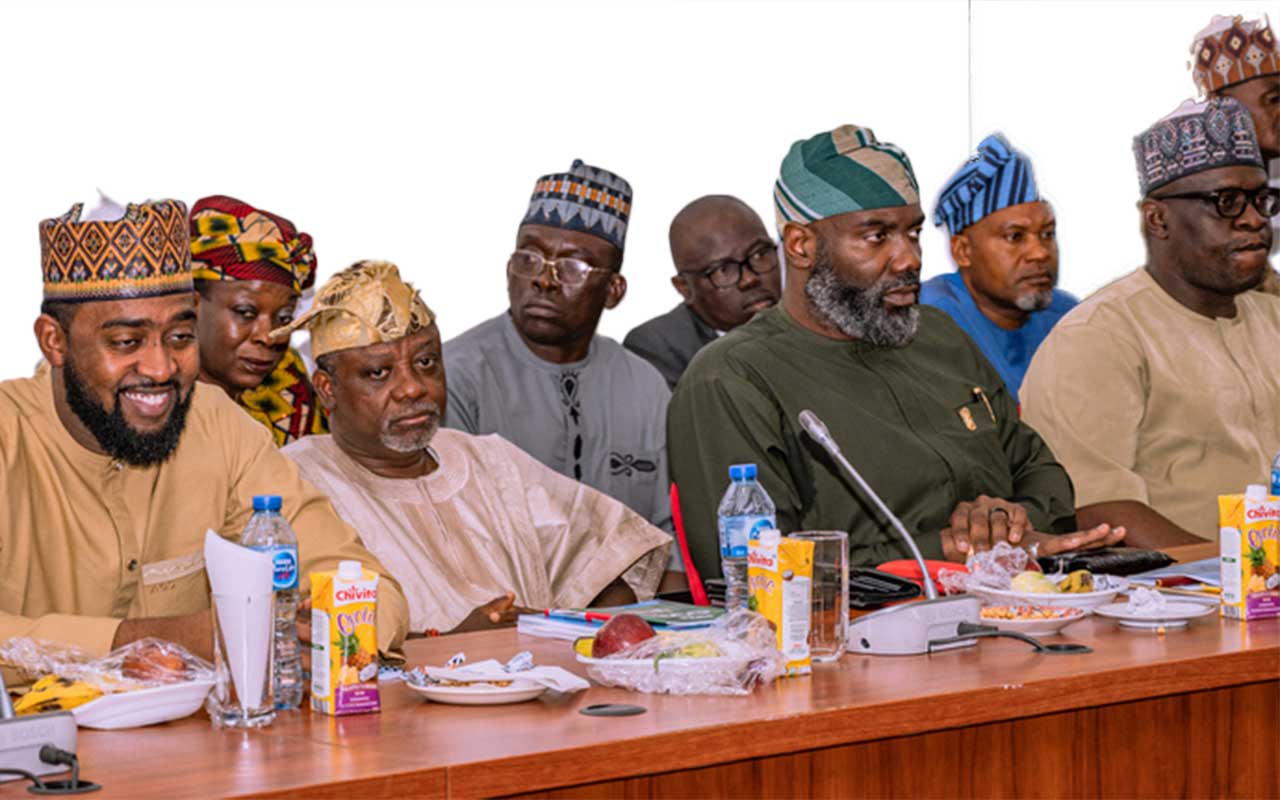
For the Ministry of Arts, Culture and the Creative Economy, the proposed 2025 budget showed that out of a total allocation of N6.92 billion, N975.95 million was for personnel costs, N1.54 billion was for overhead costs, while over N4.4 billion was for capital expenditure.
Last year, the Ministry also received N6,686,720,656 as total appropriation, comprising N6,107,137,152 for Capital Expenditure and N579,583,504 for Recurrent Expenditures.
These allocations have sparked questions owing to discrepancies between the budget provisions and the recent restructuring of these ministries.
Under the Ministry of Tourism, the Nigerian Tourism Development Corporation got N2.51 billion and the National Institute for Hospitality and Tourism (NIHOTOURS) got N3.63 billion.
Chairman of the Committee, Senator Mohammed Ogoshi Onawo, made this known when Chief Executives of agencies under the sector appeared before the Committee at the National Assembly Complex to defend their respective budgets for the year 2025.
He lamented that as one of the most important sectors of the economy, the culture sector is yet to receive the appropriate attention it deserves from government. “I don’t see how an agency can be created and no single kobo is given to them from January to December. This is one of the most important sectors of the economy but unfortunately, it is not being given the attention it deserves,” he said.
“Each of the agencies here is capable of generating billions but unfortunately, they cannot do that because they are not properly funded. As a responsible parliament, there is no way we will accept the burden placed on these agencies without adequate funds to operate. The Committee for now is not accepting the envelopes given to each of the agencies. This is very sad.
“If you look at the envelope given to each of them, you will agree with me that it is a far cry but we will sit down and discuss how best to go about it,” he said.
The Senate Committee, therefore, asked them to write a proposal on what they want, which will now be tabled before the Senate President through the Appropriation Committee “to see what they can get for us to improve our budget and make work go on very well,” said one of the heads of agencies in the ministry. He lamented the regrettable relegation of culture, saying “any country without respect for its culture can never grow.”
He said, “one of the challenges we have is the belief that everything is about revenue. Art is not everything about money. How much can you make from the National Museum? The facility is for preservation of cultural artefacts and monuments, if we are encouraging people to visit the facility, charging in the process as little as N500 can you consider that as revenue? It is just for people to visit. Most of the agencies cannot generate as much as revenue as the government ones like the NNPC. The National Troupe, no matter how much they perform, they can’t make N1 billion a year. Look at the National Film and Video Censors Board (NFVCB), how much can it generate through its film classifications? If NFVCB begins to charge say N1 million for classification, how many filmmakers would be ready to pay that kind of amount?”
The culture head said: “The sector can be a source of economic growth and global cultural influence. It can also be a source of employment and wealth creation. But it is underfunded and needs more attention from the government.”
The sector receives a portion of the federal budget, which is used to fund cultural activities, infrastructure, and events. The budget also funds the construction of cultural infrastructure, such as museums, theatres and libraries. The budget funds the organisation of cultural events such as national festivals.
The culture sector has limited access to formal financing mechanisms. Banks and other financial institutions may not be able to assess the creditworthiness of cultural projects. The lack of formal financing can discourage producers from innovating. The lack of formal financing can stifle innovation and quality production.
According to The Guardian checks, the sector best represents the innovation, creativity, and imagination of Nigerians, if the correct strategic investments are made, the country will not just unlock more than 10 million new jobs, it will earn 100 billion dollars yearly as contribution to the economy by 2030, and create incredible content and begin to own the black and African narrative.
Experts have asserted that the country needs clear and transparent policy actions that will enable and unlock the various ecosystems, as well as unlock connected sectors that make up the culture and creative industry and set them on a path to sustainable growth.
Chief Executives of Culture agencies present at the budget defence were the Director General, National Council for Arts and Culture (NCAC), Obi Asika; Director General, National Commission for Museums and Monuments (NCMM); Executive Director, National Film and Video Censors Board (NFVCB), Dr. Shaibu Husseini; Managing Director, National Film Corporation (NFC), Ali Nuhu; Artistic Director, National Troupe of Nigeria (NTN), Hajia Kaltume Bulama Gana; the Executive Secretary/CEO, National Institute for Cultural Orientation (NICO), Otunba Biodun Ajiboye and Aisha Augie, the Director General of the Centre for Black and African Arts and Civilisation (CBAAC).






